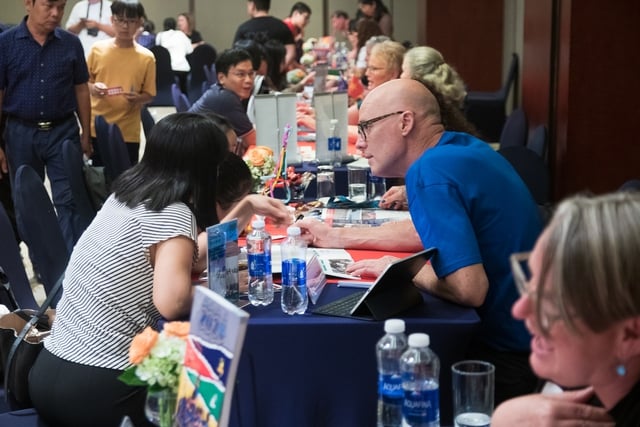
Parents and students attend a seminar on studying abroad in New Zealand organized by the government in May in Ho Chi Minh City.
PHOTO: NGOC LONG
The common point of policies for staying and working after graduation is that Vietnamese international students are required to complete a full-time degree course at an educational institution in the host country, either through direct study in that country or through joint training programs with Vietnamese universities, but must have time to study in the host country and apply for an appropriate student visa. The permitted stay period usually lasts from 1-3 years according to the regulations of each country.
Stay and work after graduation in English speaking countries
In the US, according to the US Citizenship and Immigration Services (USCIS), Vietnamese international students can apply for the Optional Practical Training (OPT) program to stay and work for one year, with a job directly related to the major they are studying. This level will be increased by two years if the applicant studies in STEM ( science , technology, engineering, mathematics) and the applicant must extend when the OPT program ends.
USCIS also notes that applicants can apply for OPT before or after graduation, but the time spent on OPT before graduation will be deducted from the total OPT time. Thus, Vietnamese international students may lose the right to continue residing in the US after graduation if they have used up all of their OPT time while still in school. Currently, OPT applies to international students with F-1 student visas.
Meanwhile, Vietnamese students in Australia can stay and work after graduation under two categories: post-vocational education work or post-higher education work. Each category has a different duration, ranging from 18 months to 3 years. However, candidates studying bachelor's, applied master's and vocational training can only apply for a post-study work visa if they are under 35 years old, according to new Australian law.
Also under this new law, PhD and applied masters candidates will only be allowed to stay after graduation for 3 and 2 years respectively, down 1 year compared to before. However, bachelor's and research master's candidates will still be allowed to stay for 2 and 3 years respectively. The stay period can also be added 1-2 years depending on the region where the candidate's educational institution is located, according to the Australian Department of Home Affairs.
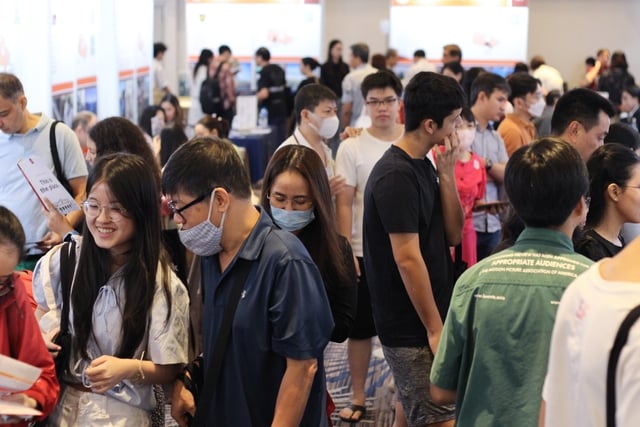
Vietnamese students at an event about studying in Canada held in 2024
PHOTO: NGOC LONG
If choosing Canada, Vietnamese international students can apply for a post-graduation work permit (PGWP) to stay. According to the new regulations, international students with bachelor’s, master’s and doctoral degrees can apply for this permit for a maximum of 3 years. If graduating from a vocational training program, candidates must study one of the 989 majors with long-term labor shortages in this country to be granted a PGWP with a duration equivalent to the length of the study program.
Another new requirement is that applicants must submit an English or French language certificate according to the Canadian Language Assessment Framework at level 7 if they graduated from a university, or level 5 if they graduated from a college or polytechnic, according to Immigration, Refugees and Citizenship Canada (IRCC).
Vietnamese students in the UK can apply for a graduate work visa to stay and work for 2-3 years. However, this period is likely to be shortened, because the UK government proposed in May to reduce it to 18 months for all different levels of study, which is currently awaiting consideration by the UK Parliament. Meanwhile, in New Zealand, you can apply for a graduate work visa (PSW) to work for up to 3 years.
What about Asian destinations?
Recently, the Malaysian Education Global Services (EMGS) announced that it has added Vietnam and other Southeast Asian countries to the list of countries eligible for the Graduate Pass to stay for up to 1 year. This program was announced at the end of 2023 and is part of a series of measures under the "Visa Liberalization Plan" to attract more tourists and international students to Malaysia.
In Southeast Asia, Thailand launched a visa policy called Non-ED Plus in late 2024, allowing international students studying at the bachelor's level or higher to stay for an additional year after graduation to find a job, according to the Thai Prime Minister's Office. Or, you can apply for a working holiday visa or an internship work permit issued by the Singapore Ministry of Manpower to stay in the country for 6 months.
More broadly in Asia, Taiwan does not have a specific route for international students to stay and work, but is allowing international students to extend their Residence Permit (ARC) for up to two years after graduation to find jobs related to their major. However, while looking for a job and waiting for a company to sponsor them, international students will not be allowed to work part-time, according to Taiwan's Ministry of the Interior.

Korean university representative advises Vietnamese people at a conference organized by this country in 2024
PHOTO: NGOC LONG
Meanwhile, the Korean Ministry of Justice announced new policies to attract talent at the end of 2024, including increasing the duration of the job-seeking visa (D-10-1) to a maximum of 3 years instead of 2 years as before. In addition, the period allowed for international students to intern after graduation at a company has also been increased from 6 months to a maximum of 1 year. This type of visa is for international students who have studied in Korea in the last 3 years of residence.
Other prominent study abroad destinations such as China and Japan do not yet have an independent policy on post-graduation work rights for international students or this right is limited. For example, if an international student in Japan does not have a job after graduation, he/she must switch to another visa, stay for a maximum of 12 months and must have a letter of recommendation from the school if he/she wants to continue looking for a job, according to the Study in Japan website.
Source: https://thanhnien.vn/nhung-nuoc-nao-cho-phep-du-hoc-sinh-viet-nam-o-lai-lam-viec-sau-tot-nghiep-185250613183010796.htm



![[Photo] Prime Minister Pham Minh Chinh chairs the meeting of the Government Party Committee Standing Committee](https://vphoto.vietnam.vn/thumb/1200x675/vietnam/resource/IMAGE/2025/8/23/8e94aa3d26424d1ab1528c3e4bbacc45)
![[Photo] General Secretary To Lam attends the 80th Anniversary of the Cultural Sector's Traditional Day](https://vphoto.vietnam.vn/thumb/1200x675/vietnam/resource/IMAGE/2025/8/23/7a88e6b58502490aa153adf8f0eec2b2)






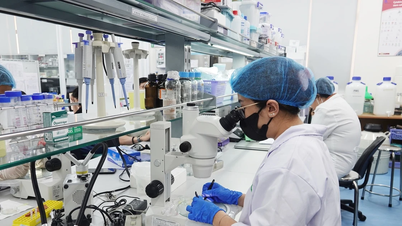

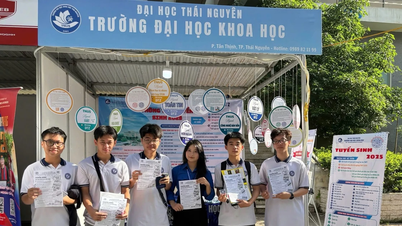
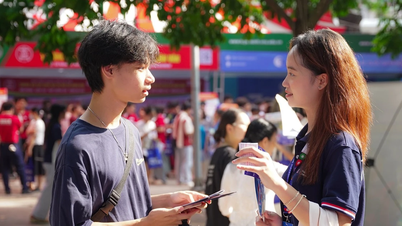







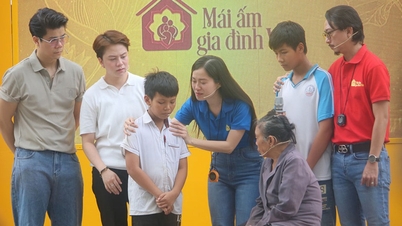











































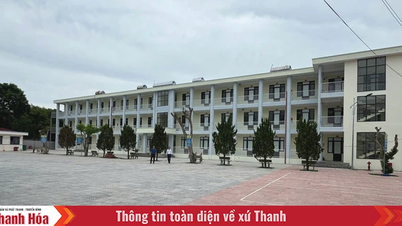


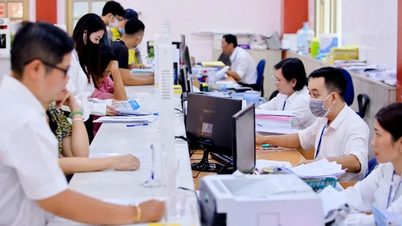





















Comment (0)